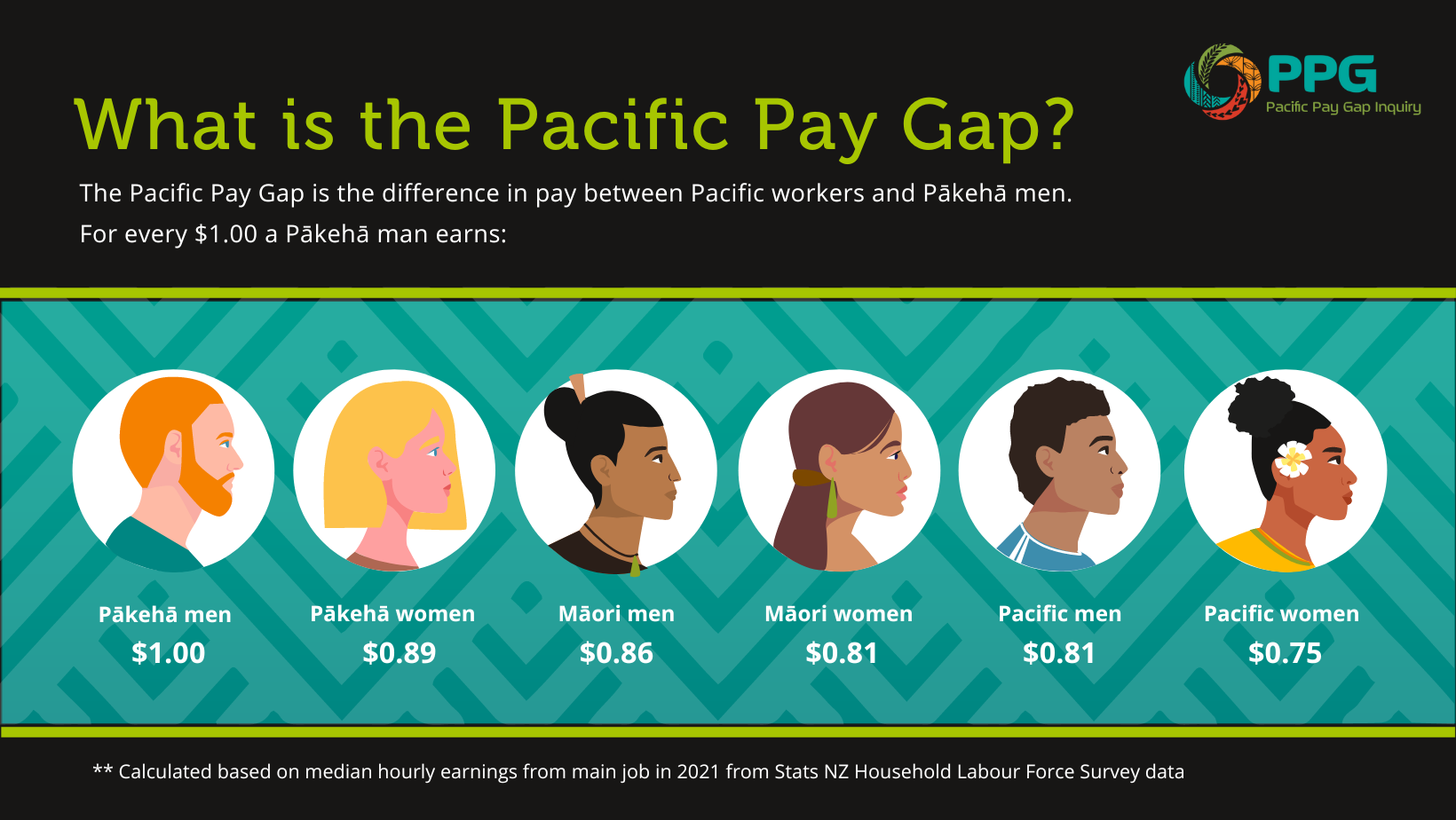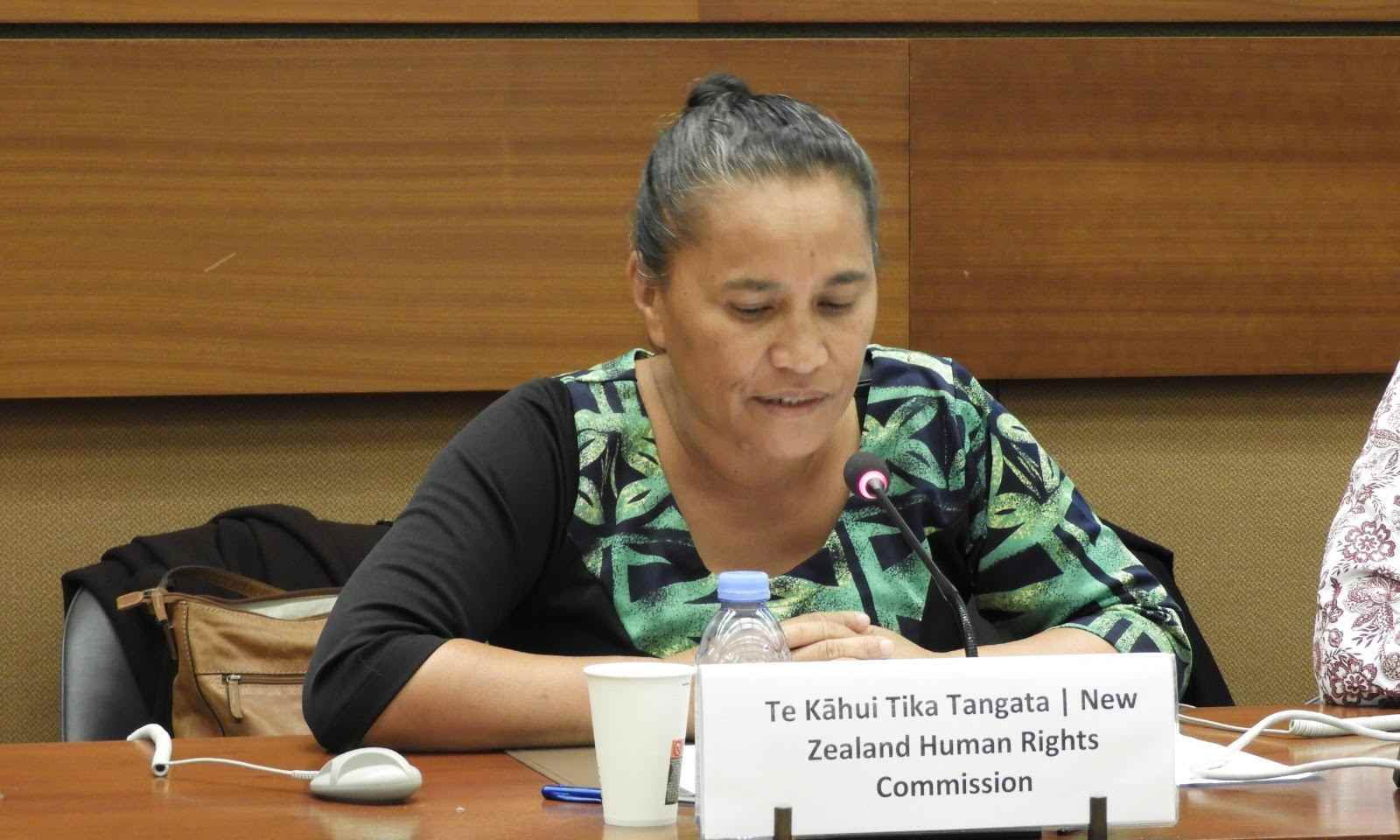

Saunoamaali'i Dr Karanina Sumeo is celebrating upcoming changes to pay transparency law.
Photo/File/Unsplash
‘This gives us more power’: Pacific workers welcome end to pay secrecy clauses
Advocates say the legislation is a vital step towards achieving equality, while MPs agree there are ongoing challenges in addressing systemic pay gaps.



Pacific set to lead at landmark climate adaptation conference

PM XIII impressive as Otago edge Waikato in epic NPC quarter-final



PIF praises Nauru’s 'transparent' elections as voters reject 4-year parliamentary term

Pacific set to lead at landmark climate adaptation conference

PM XIII impressive as Otago edge Waikato in epic NPC quarter-final

Pacific workers are optimistic about a new law that is set to end any secrecy around pay, enabling them to challenge discrimination and demand fair wages.
The Employment Relations (Remuneration Disclosure) Amendment Bill passed its third reading in Parliament last week, receiving support from the Labour, National, the Greens, and Te Pāti Māori parties.
Saunoamaali'i Dr Karanina Sumeo, a former Equal Employment Opportunities Commissioner, says the change will have a major impact on Pacific people, who are often underpaid compared to their colleagues.
“Some of our contracts have a clause where you’re not allowed to talk about your pay,” she tells Fala Haulangi on PMN Tuvalu.
“If you find out you’re doing the same job as everybody else, but you’re being paid less, there’s not much you can do about it.
“What the law does now is that it lifts the secrecy … now you can openly talk with your colleagues about your pay.”
Watch Saunoamaali'i Dr Karanina Sumeo's full interview below.
Saunoamaali’i says this will especially help Pacific workers, who are often reluctant to raise concerns about unfair treatment.
“Sometimes we’re very shy,” she says. “We’re scared to talk about our pay, even though we feel it’s insulting and disrespectful. Well, this gives you permission to ask those questions.
“That pay supports our families, pays the rent, puts the shoes on the kids’ feet, and turns the heaters on. So the stakes for us are very, very high. This transparency gives you more power.”

Image/Pacific Pay Gap Inquiry 2021
The amendments provide workers with grounds for a personal grievance if they suffer negative consequences as a result of discussing their pay.
The Pacific Pay Gap Enquiry, led by Saunoamaali’i during her tenure at the Human Rights Commission, played a key role in prompting the new law.
It showed that the average Pacific woman is paid 25 per cent less than a palagi male in a similar role.
At the bill’s third reading last week, Camilla Belich, Labour Party MP and champion of the proposed changes, acknowledged the enquiry and says that a lack of pay transparency was a major barrier to fairness.
“We cannot keep taking steps backwards when it comes to equality and fairness,” Belich says. “These are things that should be bipartisan.
“Backwards steps for women, for Māori, for Pasifika are backwards steps for all of us. Ignoring inequalities has never made them go away; it has just made them worse.”

Employees will soon be able to discuss their pay with coworkers, without fear of retaliation from their bosses. Photo/Unsplash
Green Party MP Teanau Tuiono describes the legislation as a significant step in an ongoing journey.
“There is still much work to be done to address the gender pay gaps, the Pasifika pay gaps, and ethnic pay gaps as well,” he says. “But at least we can say that, in this House … that step will be enshrined in legislation.”
National MP Dr Vanessa Weenink also supports the bill, saying it signals progress towards closing long-standing pay gaps for women.
“In Aotearoa, it’s presently 8.2 per cent, but there’s a difference when we look at different ethnicities: it’s 28 per cent for Māori wāhine, and 24 per cent for Pasifika women,” she says. “People with disabilities face significant wage disparities as well.”
But New Zealand First MP Mark Patterson criticises the bill, arguing that it allows employees to breach their contracts. “This is an abomination,” he says. “We are torching contract law … Where does this end if we, willy-nilly, are just passing legislation that allows people to flout contract law?”
The ACT Party also voted against the bill.

Saunoamaali'i Dr Karanina Sumeo worked to close the Pacific pay gap during her time as the Equal Employment Opportunities Commissioner. Photo/File
Hope for a future with equal pay
Meanwhile, unions are celebrating the legal change. Haulangi, a First Union organiser, says pay secrecy has long undermined collective bargaining efforts.
She recalls discovering that factory workers were earning $27 an hour, while their collective agreement mandated between $32 and $33.
For Saunoamaali’i, the law is a testament to the importance of Pacific workers’ voices. She praised the efforts of union leaders and advocates.
“You have done the country a favour, you have done workers a favour and generations of workers,” she says.
“We’ve begun to lift this cloud of secrecy that’s imprisoned us in situations of hardship and poverty. Because of you, the law has been changed, and it won’t just benefit Pacific, it benefits everybody.”
The Employment Relations (Remuneration Disclosure) Amendment Bill is now awaiting royal assent before it becomes law.